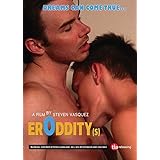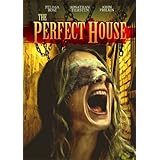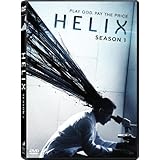
Warner Archive once again shows tremendous love for fanboys in releasing a typically affordable complete series DVD set of the rarely seen 1982 Saturday morning sci-fi cartoon sequel "Gilligan's Planet" the week before the 2014 Comic-Con. This series combines everything awesome about the shows that receive Con love. (Next year in San Diego.)
One exciting aspect of "Planet" is that the original cast of "Gilligan's Island," with the exception of well-known malcontent Tina Louise, returns to voice their characters. (Dawn Wells does double duty as both Mary Ann and Ginger.)
The first of numerous terrific elements has the series utilizing the simple but brilliant technique of "Island" creator (and "Planet" executive consultant) Sherwood Schwartz of using the series' theme song to explain its premise. Schwartz famously describes this as allowing viewers to learn all that they need to know to understand the show in one minute.
Virtually any child who has watched television since the mid-60s knows that Schwartz does a great job with both the "Island" theme and the opening credits to his later fellow classic series "The Brady Bunch." Far fewer people know that Schwartz also has a catchy ditty for the late '60s failedcom "It's About Time," which is an intended "Island" followup that uses props from "Island" episodes that existed to provide those items for "Time."
The following clip, courtesy of YouTube, is of the opening credits of "Time." The related warnings are that you will want to watch it repeatedly and will get the theme stuck in your head along with the "Island" and "Bunch" tunes.
The following clip, also courtesy of YouTube, of the opening credits of "Planet" shows that the premise of this series is that an attempt to use a spaceship to escape the island on which Gilligan and his fellow castaways are stranded goes comically awry and strands them on a strange alien planet. The odd aspects of the series include that this new home seems both to have the same atmosphere and gravity of earth but is largely uninhabited.
The following clips, once again from YouTube, are of the catchy and explanatory opening credits of the "Josie" series.
The same information provided regarding the above clips also applies regarding the following opening credits.
One of the cuter "Planet" episodes has a goofy-looking sea serpent stranding our group on an island. Another memorable episode uses the quasi-regular "Island" technique of a dream sequence as the format for an especially surreal adventure. This one has Gilligan encountering hostile aliens on traveling to the center of his planet to rescue his friends. One spoiler is that the rest of the episodes are equally bizarre and amusing.
The conclusions to draw regarding this extensive look regarding the probable influences that lead to creating "Planet" are that it does the legacy of animated and sci-fi series based on wonderfully goofy live-action series proud and that your reviewer spent far too many childhood Saturday mornings watching television (and eating oh-so-tasty Quisp cereal).
Anyone with questions or comments regarding "Planet" or any other series that this review mentions is strongly encouraged to email me. You can also connect on Twitter via @tvdvdguy.

















